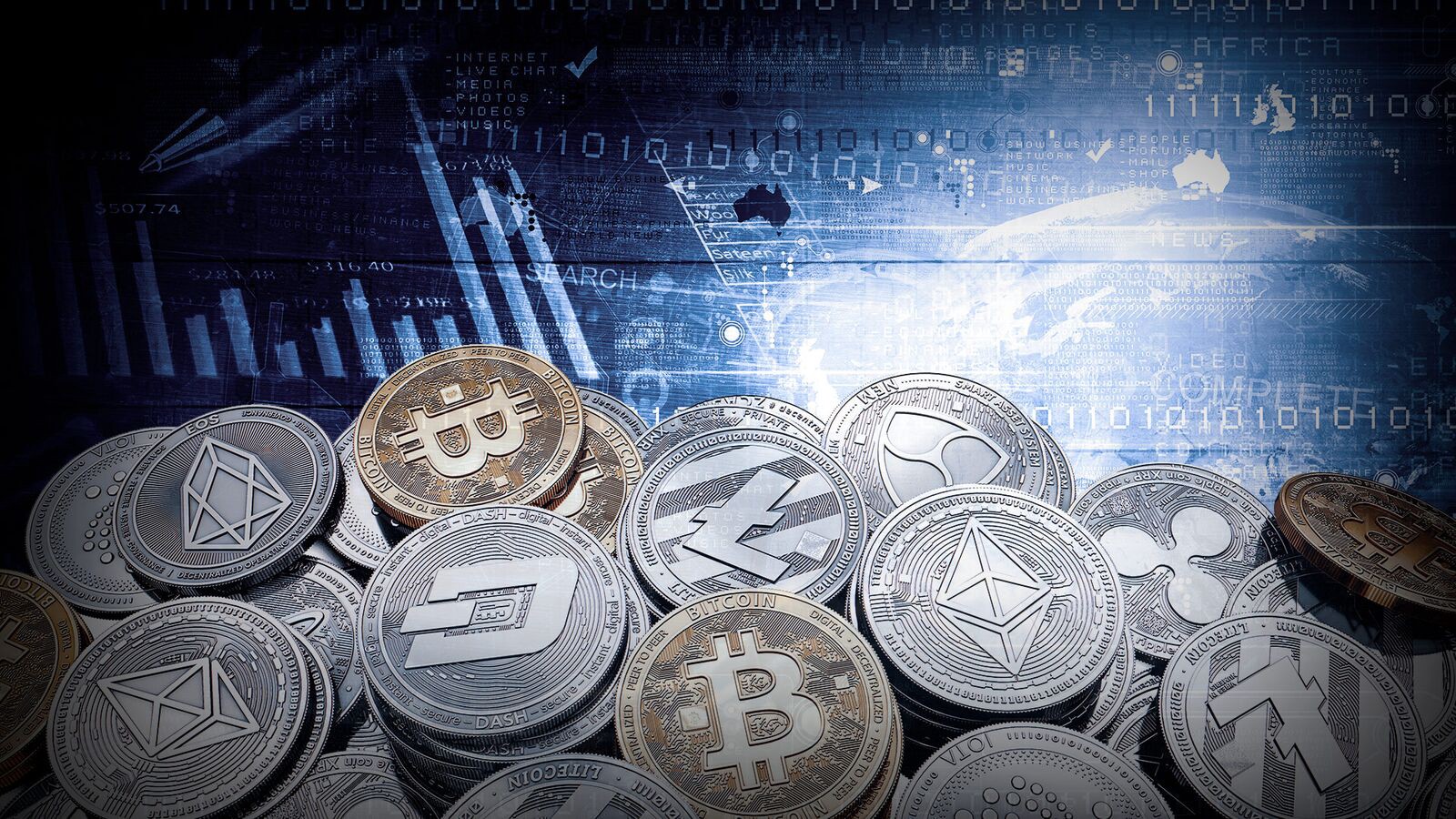Analyzing The Great Decoupling: Trends And Forecasts

Table of Contents
The world is witnessing a dramatic shift in global power dynamics, marked by increasing economic and technological divergence. This phenomenon, often referred to as the "Great Decoupling," represents the growing rift between the United States and China, with profound implications for the global economy and geopolitical landscape. Rising geopolitical tensions, fueled by trade disputes, technological competition, and differing ideological approaches, are accelerating this separation. This article aims to analyze the current trends associated with the Great Decoupling and offer informed forecasts regarding its future trajectory.
H2: Technological Decoupling: A New Cold War?
The technological decoupling between the US and China is arguably the most significant aspect of the Great Decoupling, resembling a new kind of Cold War fought not with military might alone, but with technological dominance.
H3: Semiconductor Supply Chains and National Security:
The semiconductor industry lies at the heart of this technological battle. The competition for dominance in semiconductor manufacturing is fierce, impacting global tech supply chains and national security.
- US CHIPS Act: The US CHIPS and Science Act aims to bolster domestic semiconductor production, reducing reliance on foreign suppliers, particularly China.
- China's domestic chip ambitions: China is aggressively investing in its own domestic semiconductor industry, aiming to achieve self-sufficiency and challenge US dominance.
- Impact on global tech supply chains: This competition is leading to a fragmentation of global supply chains, with increased regionalization of semiconductor production.
- Potential for regionalization of production: We are seeing the emergence of regionalized semiconductor ecosystems, potentially leading to a bipolar or even multipolar world in chip manufacturing.
Keywords: semiconductor technology, chip fabrication, supply chain resilience, technological nationalism, semiconductor supply chain
H3: AI Development and the Race for Technological Supremacy:
The race for artificial intelligence (AI) supremacy is another key battleground in the technological decoupling. The development and deployment of AI technologies have significant implications for economic competitiveness and national security.
- AI regulation: Both the US and China are grappling with how to regulate AI development, balancing innovation with concerns about ethical implications and national security.
- Data security concerns: Data security is a major concern, as the flow of data across borders becomes increasingly restricted.
- AI talent war: A global competition for AI talent is intensifying, with countries vying to attract and retain the best researchers and engineers.
- Potential for AI-driven military applications: The potential for AI to revolutionize military capabilities further exacerbates geopolitical tensions.
Keywords: Artificial intelligence, AI development, AI regulation, technological leadership, AI ethics, AI security
H2: Economic Decoupling: Diverging Trade and Investment Patterns
The Great Decoupling is not just about technology; it's fundamentally reshaping global trade and investment patterns.
H3: Shifting Trade Relationships and Regionalization:
The decoupling process is accelerating the shift towards regional trade blocs and a diversification of supply chains.
- Rise of regional trade blocs: We see a strengthening of regional trade agreements, such as the RCEP in Asia and the EU's trade deals.
- Diversification of supply chains: Businesses are diversifying their supply chains to reduce reliance on any single country, particularly China.
- Impact on global trade volume: While some argue that decoupling will reduce global trade, others believe that new trade routes and relationships will emerge.
- Potential for trade wars: The risk of further trade disputes and potential trade wars remains significant.
Keywords: Global trade, trade diversification, regional trade agreements, international trade policy, trade wars, economic decoupling
H3: Financial Decoupling and Currency Wars:
The decoupling also has significant implications for the global financial system, potentially leading to a restructuring of the international monetary system.
- Impact on the US dollar's dominance: The dominance of the US dollar is being challenged as other currencies, particularly the Chinese yuan, gain importance.
- Rise of alternative currencies: The potential for new payment systems and alternative currencies could further fragment the financial landscape.
- Potential for financial instability: The decoupling introduces new sources of financial instability and uncertainty.
- Cross-border capital flows: Restrictions on cross-border capital flows are becoming more common, impacting international investment.
Keywords: Financial decoupling, currency wars, international finance, global monetary system, yuan, US dollar
H2: Geopolitical Implications of the Great Decoupling
The Great Decoupling is not merely an economic phenomenon; it's fundamentally altering the geopolitical landscape, increasing tensions and uncertainty.
H3: Increased Geopolitical Tensions and the Risk of Conflict:
The decoupling is increasing geopolitical risks, particularly in the Asia-Pacific region.
- Taiwan Strait tensions: Tensions surrounding Taiwan have intensified, posing a significant risk of military conflict.
- South China Sea disputes: Territorial disputes in the South China Sea further heighten regional instability.
- Potential for proxy conflicts: The decoupling could lead to proxy conflicts between the US and China, involving other countries.
- Impact on global security: The overall impact on global security is a significant concern.
Keywords: Geopolitical risk, international relations, conflict escalation, national security, Taiwan, South China Sea
H3: The Rise of Multipolarity and Shifting Global Power Dynamics:
The decoupling is contributing to a more multipolar world order, challenging the long-standing dominance of the US.
- The rise of other global powers (EU, India): The EU and India, among other nations, are emerging as significant global players.
- New alliances and partnerships: New alliances and partnerships are forming, reflecting the changing geopolitical landscape.
- Changing international institutions: Existing international institutions are being challenged, and new ones may emerge.
- Future of globalization: The future of globalization itself is uncertain in light of the Great Decoupling.
Keywords: Multipolar world, global power dynamics, international cooperation, geopolitical realignment, globalization
H2: Forecasting the Future of the Great Decoupling
Predicting the future trajectory of the Great Decoupling is challenging, but several possible scenarios can be envisioned.
H3: Potential Scenarios and Their Implications:
Several scenarios could unfold, each with profound implications:
- Complete decoupling: A complete separation of the US and Chinese economies and technology sectors.
- Partial decoupling: A partial separation, with some areas of cooperation remaining.
- Managed competition: A system of managed competition between the US and China, with rules and regulations governing technological and economic interaction.
- Renewed cooperation: A return to greater cooperation between the US and China, potentially driven by a shared interest in addressing global challenges.
Keywords: future forecasts, scenario planning, global economic outlook, strategic foresight, geopolitical forecasting
Conclusion:
The Great Decoupling represents a fundamental shift in the global landscape. The technological competition, particularly in semiconductors and AI, is driving economic divergence and intensifying geopolitical tensions. The resulting shifts in trade, investment, and financial systems pose significant challenges and risks. Forecasting the future is difficult, but understanding the various potential scenarios is crucial. Understanding the Great Decoupling is crucial for navigating the complexities of the evolving global landscape. Continue exploring this dynamic issue, whether focusing on economic decoupling, technological decoupling, or geopolitical decoupling, to better anticipate and respond to its impact.

Featured Posts
-
 Kripto Para Piyasasinda Kripto Lider In Yuekselisi
May 08, 2025
Kripto Para Piyasasinda Kripto Lider In Yuekselisi
May 08, 2025 -
 Lahore Schools Adjust Timings For Psl Matches
May 08, 2025
Lahore Schools Adjust Timings For Psl Matches
May 08, 2025 -
 Sonos And Ikea End Their Partnership What This Means For Consumers
May 08, 2025
Sonos And Ikea End Their Partnership What This Means For Consumers
May 08, 2025 -
 Lahore And Punjab Eid Ul Fitr Weather Outlook 2 Day Forecast
May 08, 2025
Lahore And Punjab Eid Ul Fitr Weather Outlook 2 Day Forecast
May 08, 2025 -
 New Trailer For The Long Walk A Glimpse Into Kings Brutal Story
May 08, 2025
New Trailer For The Long Walk A Glimpse Into Kings Brutal Story
May 08, 2025
Latest Posts
-
 Andor Season 2 Trailer Delay Fueling Fan Frustration And Theories
May 08, 2025
Andor Season 2 Trailer Delay Fueling Fan Frustration And Theories
May 08, 2025 -
 Andor Season 1 Where To Stream Episodes 1 3 Hulu And You Tube
May 08, 2025
Andor Season 1 Where To Stream Episodes 1 3 Hulu And You Tube
May 08, 2025 -
 Andors First Look Everything We Hoped For And More In The Star Wars Universe
May 08, 2025
Andors First Look Everything We Hoped For And More In The Star Wars Universe
May 08, 2025 -
 Watch Andor Season 1 Episodes 1 3 Hulu And You Tube Streaming Options
May 08, 2025
Watch Andor Season 1 Episodes 1 3 Hulu And You Tube Streaming Options
May 08, 2025 -
 Andor First Look Delivers On Decades Of Star Wars Teases
May 08, 2025
Andor First Look Delivers On Decades Of Star Wars Teases
May 08, 2025
